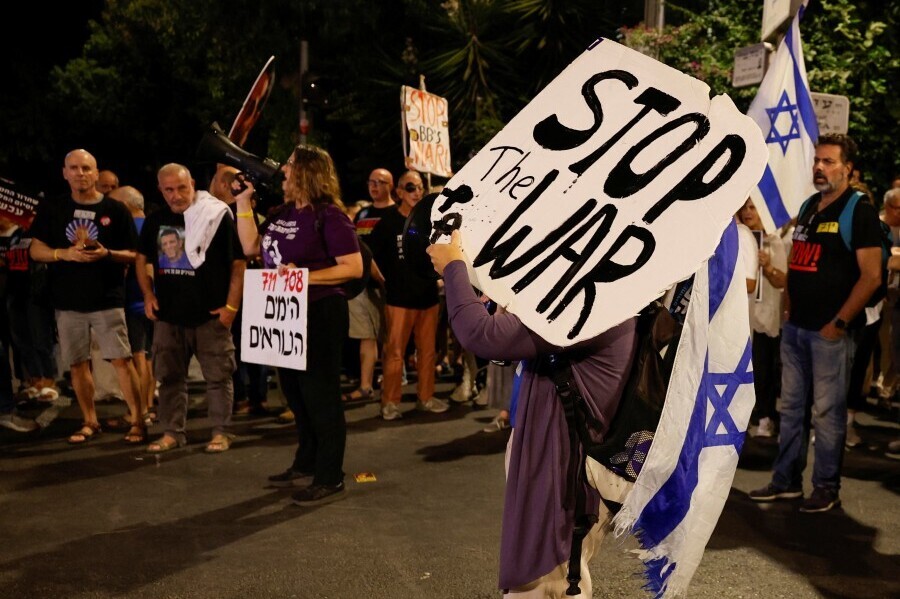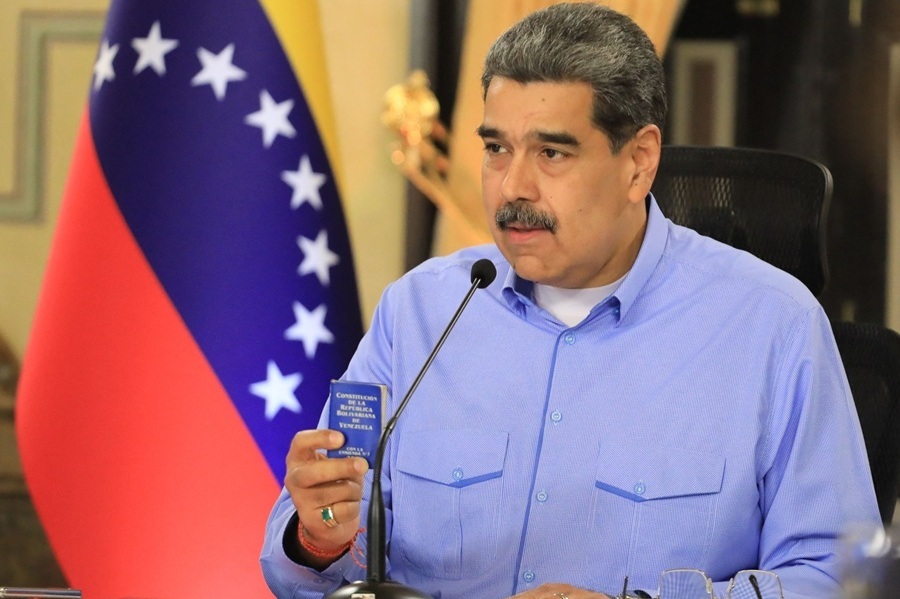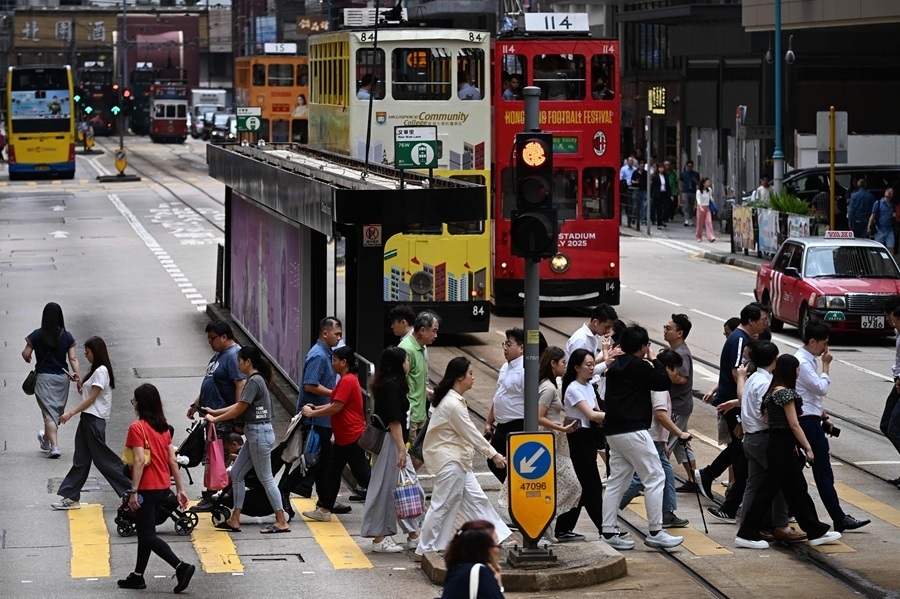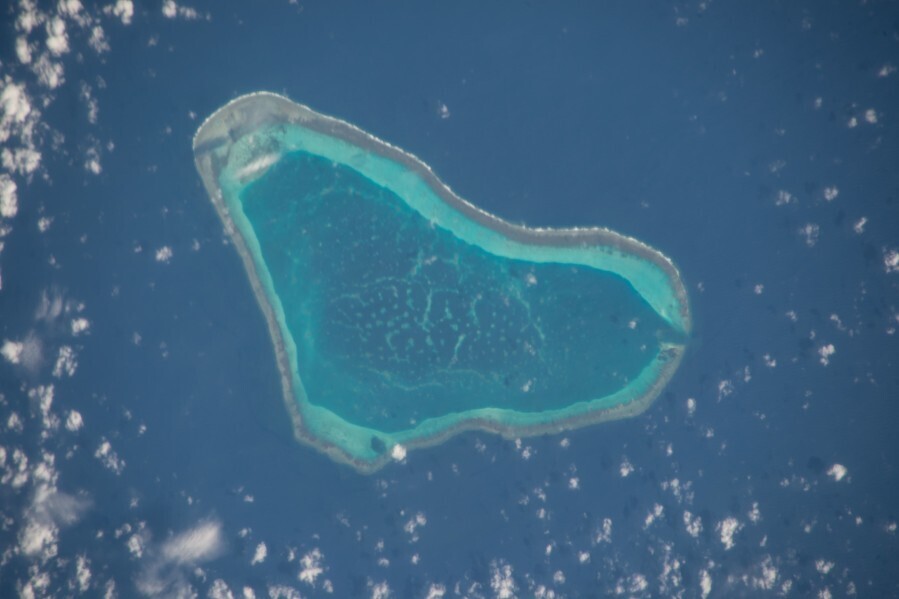Malaysia’s high-stakes ASEAN chairmanship amid global turmoil
All eyes are on Malaysia as it approaches the climax of its ASEAN chairmanship in late October, marked by the second ASEAN summit of 2025 and a series of key meetings, including the East Asia Summit and ASEAN Plus Three. These events could draw some of the world’s most prominent leaders. Malaysian academic Ngeow Chow Bing gives an assessment of Malaysia’s ASEAN chairmanship thus far.
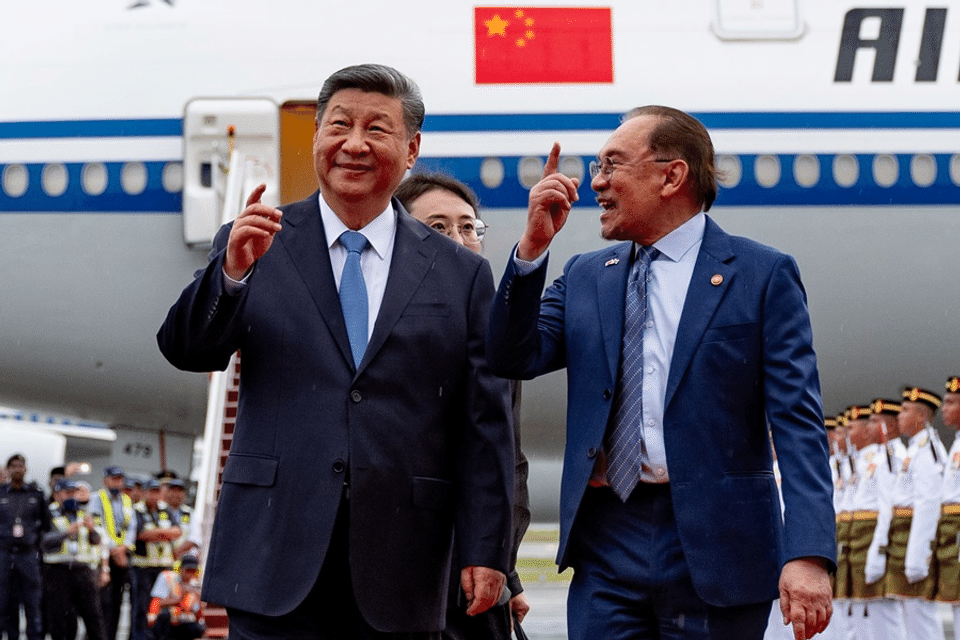
When Malaysia assumed the chairmanship of the Association of Southeast Asian Nations (ASEAN) in early 2025, it did so amid a challenging regional and global landscape marked by wars raging in Ukraine and the Middle East, ongoing tensions in the South China Sea and the civil war in Myanmar, as well as heightened uncertainties associated with the incoming return to office by President Trump. Trump’s upending of the global trading order with the announcement of high tariffs against trading partners in April added to the list of challenges confronting ASEAN and Malaysia.
As a prime minister proactive in shaping Malaysia’s foreign policy agenda and directions, Anwar Ibrahim is determined to make a mark with Malaysia’s chairmanship of ASEAN. The designated theme of “inclusivity and sustainability” ensured the focus would be on fostering greater regional cooperation, addressing long-term challenges and strengthening ASEAN’s resilience in an increasingly complex landscape.
ASEAN-GCC-China Summit a feather in the cap
Guided by these principles, Malaysia played a leading role in completing the document ASEAN 2045: Our Shared Future, a strategic framework for the next 20 years, aiming to help member states align their policies and plans with a shared regional vision.
Other key items on Malaysia’s ASEAN agenda included expediting the accession of Timor Leste’s membership in 2025, enhancing regional energy cooperation, in particular in the form of ASEAN Power Grid; concluding the negotiations of a region-wide digital economy framework agreement; and most innovatively, convening the first ASEAN-Gulf Cooperation Council (GCC)-China Summit.
... Anwar proved more willing to engage with the Myanmar military leaders and was unfazed by criticisms that engaging with the military junta risks legitimising their coup in 2021.
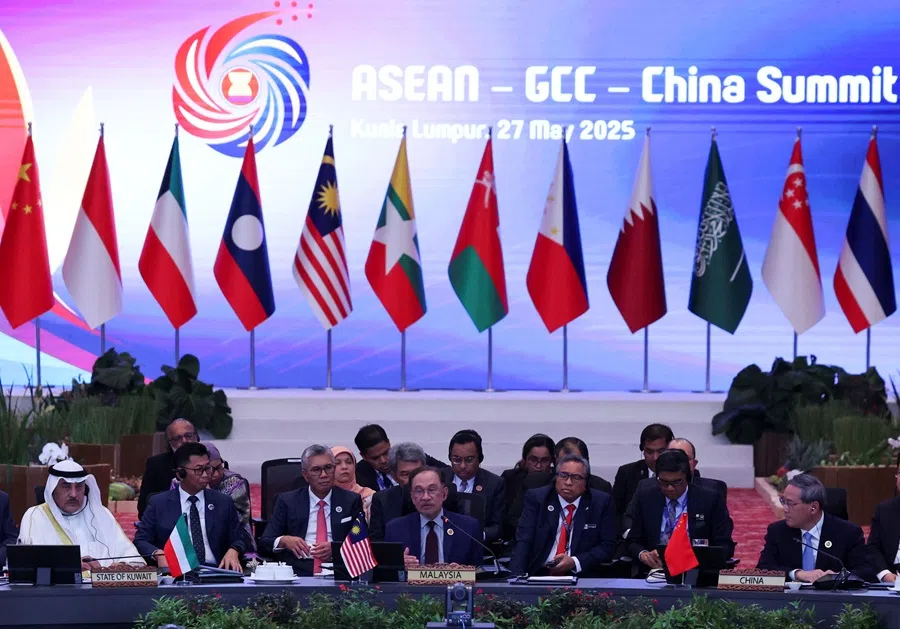
The ASEAN-GCC-China Summit, held in late May, garnered the most attention, especially in the wake of Trump’s tariffs, as another incipient platform of Global South cooperation, although doubts remain whether this platform will sustain in the future.
Anwar has also called for a more united ASEAN stance in facing global economic turbulence with the inception of the ASEAN Geoeconomic Task Force — an innovative initiative designed to monitor geoeconomic risks and trends while coordinating regional policies.
Nonetheless, as a less structured bloc, ASEAN is not able to operate like the EU in trade negotiations; its member states have to resort to bilateral negotiations with the Trump administration to secure a revised tariff rate.
Mixed record of regional skirmishes and South China Sea
On addressing regional geopolitical issues, Malaysia has had a mixed record so far. In April, Anwar met with Myanmar junta leader Min Aung Hlaing in Bangkok, claiming to have secured a ceasefire and guaranteed unimpeded delivery of humanitarian aid. Following this meeting, he also spoke virtually with Win Khaing Than, leader of the opposition National Unity Government (NUG).
In the spirit of fostering “inclusive dialogues”, Anwar proved more willing to engage with the Myanmar military leaders and was unfazed by criticisms that engaging with the military junta risks legitimising their coup in 2021. However, his optimism about the possibility of direct talks between the junta and the NUG seems overly hopeful, as tangible progress toward lasting peace remains elusive.
ASEAN chairmanship does not give Malaysia much influence over the negotiation process of the Code of Conduct (COC) of the South China Sea.
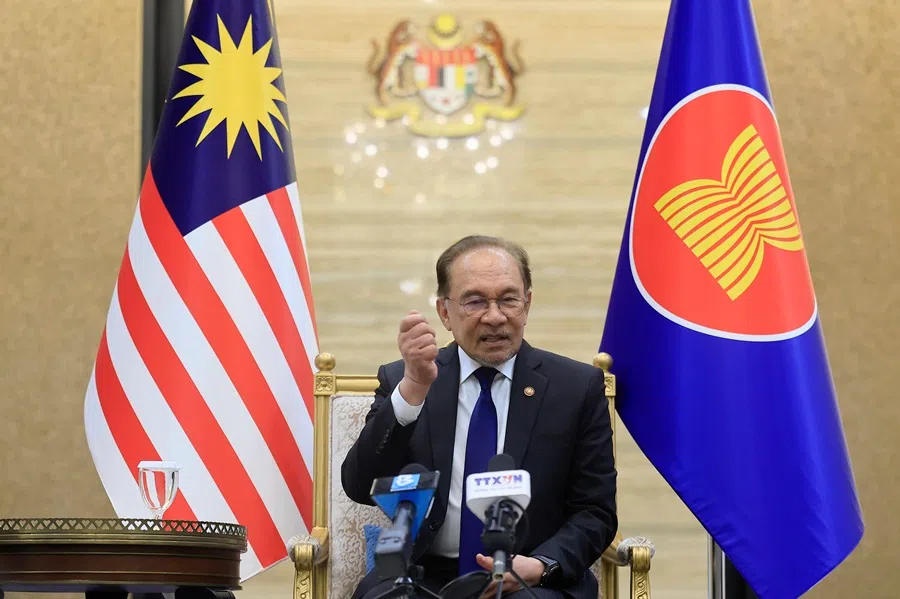
ASEAN chairmanship does not give Malaysia much influence over the negotiation process of the Code of Conduct (COC) of the South China Sea. The negotiation process is on a separate track from the agenda of ASEAN meetings and summits organised by the ASEAN chair.
Instead, it is the other concurrent ASEAN role of Malaysia, as the country coordinator for ASEAN’s relations with China, that will allow Malaysia to inject more impetus into the negotiation process. Nonetheless, the persistent divisions among the negotiating parties — especially between China and the Philippines — make an early resolution unlikely.
Malaysia seen as credible mediator in Thai-Cambodia conflict
The flare-up of the Thai-Cambodian border clash in mid-2025 was very much unexpected, and its deadliness confounded many observers who previously believed that the peaceful resolution of conflicts among ASEAN member states should be a deeply ingrained regional norm.
The failure of ASEAN to prevent the exchange of fire must count as a lesson, although credit should also be due to Anwar and Malaysia’s diplomats for quickly organising the efforts to bring both sides to the negotiating table and a ceasefire.
Malaysia actively engaged with both the US and China in this endeavour, creating a rare moment of cooperation between the two superpowers aimed at swiftly ending the conflict.
Malaysia actively engaged with both the US and China in this endeavour, creating a rare moment of cooperation between the two superpowers aimed at swiftly ending the conflict. Malaysia is also a credible country in the eyes of both Cambodia and Thailand, and is entrusted by both sides to lead the ASEAN mission in monitoring the ceasefire.
All eyes on the 47th ASEAN Summit and Related Summits
With less than three months remaining in its ASEAN chairmanship, Malaysia is preparing for the final climax in late October with the convening of the second ASEAN summit in 2025 and a series of ASEAN-anchored summits, including East Asia Summit and ASEAN Plus Three, with possible attendance by high-profile leaders from around the world.
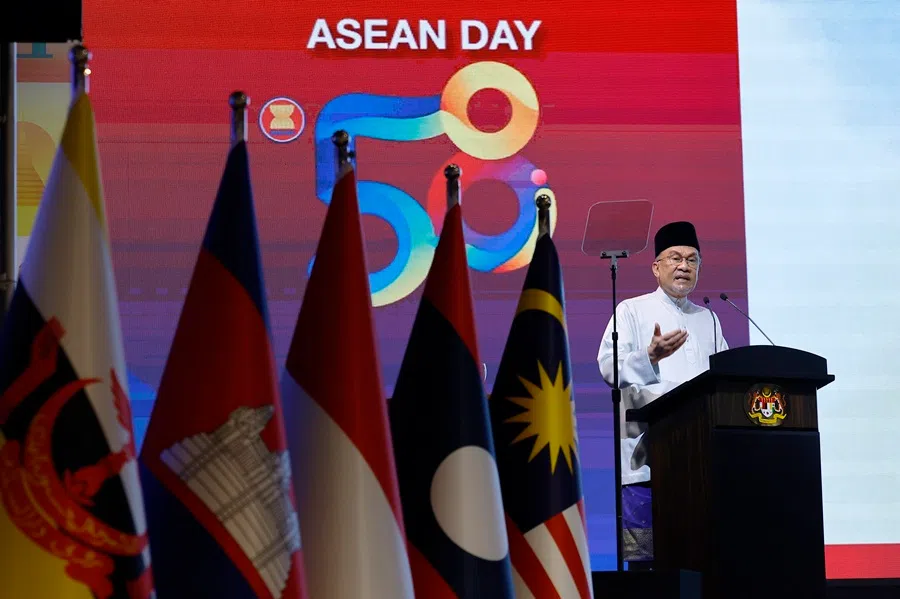
Anwar initially raised expectations that Chinese President Xi Jinping, together with US President Donald Trump and Russian President Vladimir Putin, would attend the East Asia Summit. The convergence of these three leaders would transform the summit into a striking showcase of ASEAN’s convening power and the diplomatic skill of Malaysia’s chairmanship.
However, China has indicated that it will be represented by Premier Li Qiang in late October, as Xi has just visited the country in April this year, and ASEAN-related functions are traditionally reserved for the premier. Putin has also not yet committed to attending the East Asian Summit, while Trump’s commitment remains subject to his capricious decision style.
A successfully held East Asian Summit, especially one that comes with the 20th Anniversary Declaration, will still be a significant achievement...
A US-China bilateral meeting on the sidelines also becomes unlikely, as Trump certainly prefers to interact with Xi Jinping rather than Li Qiang, and the upcoming APEC meeting in Seoul is now the expected occasion for a Xi-Trump meeting.
Despite this, Malaysia is determined to make the best out of this series of meetings and summits. A successfully held East Asian Summit, especially one that comes with the 20th Anniversary Declaration, will still be a significant achievement, raising the diplomatic profile of ASEAN, Malaysia and Anwar.

